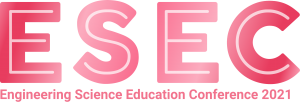Generalizable Autonomy in Robotics
Animesh Garg
Abstract
Robotics and AI are experiencing radical growth, fueled by innovations in data-driven learning paradigms coupled with novel device design, in applications such as healthcare, manufacturing and service robotics.
Data-driven methods such as reinforcement learning circumvent hand-tuned feature engineering, albeit lack guarantees and often incur a massive computational expense: training these models frequently takes weeks in addition to months of task-specific data-collection on physical systems. In contrast, biological agents can often learn faster not only through self-supervision but also through imitation.
My research aims to bridge this gap and enable generalizable imitation for robot autonomy. We need to build systems that can capture semantic task structures that promote sample efficiency and can generalize to new task instances across visual, dynamical or semantic variations.
In this talk, I will discuss the notion of Generalizable Autonomy in Manipulation. I will discuss task learning, imitation and then ideas on scaling efficiency through offline datasets. First I will talk about efficient algorithms for reinforcement learning to achieve robot manipulation skills. Then we will extend these ideas to self-supervised techniques to discover tool-usage and multi-stage planning. Further, we will talk about how large scale offline data can be leveraged for robot reinforcement learning.
Speaker Biography
Animesh Garg is an CIFAR Chair Assistant Professor of Computer Science at the University of Toronto and a Faculty Member at the Vector Institute where he leads the Toronto People, AI, and Robotics (PAIR) research group. He is affiliated with Mechanical and Industrial Engineering (courtesy) and UofT Robotics Institute. He also spends time as a Senior Researcher at Nvidia Research in ML for Robotics. Prior to this, Animesh earned a Ph.D. from UC Berkeley, and was a postdoc at the Stanford AI Lab. His research focuses on machine learning algorithms for perception and control in robotics. His work aims to build Generalizable Autonomy in robotics which involves a confluence of representations and algorithms for reinforcement learning, control, and perception. His work has received multiple Best Paper Awards (ICRA, IROS, Hamlyn Symposium, Neurips Workshop, ICML Workshop) and has been covered in the press (New York Times, Nature, BBC).
Visit our ESEC 2021 Social Pages
Engineering Science Education Conference 2021
Last updated on Jan 23 2021 by ESEC Web Team

